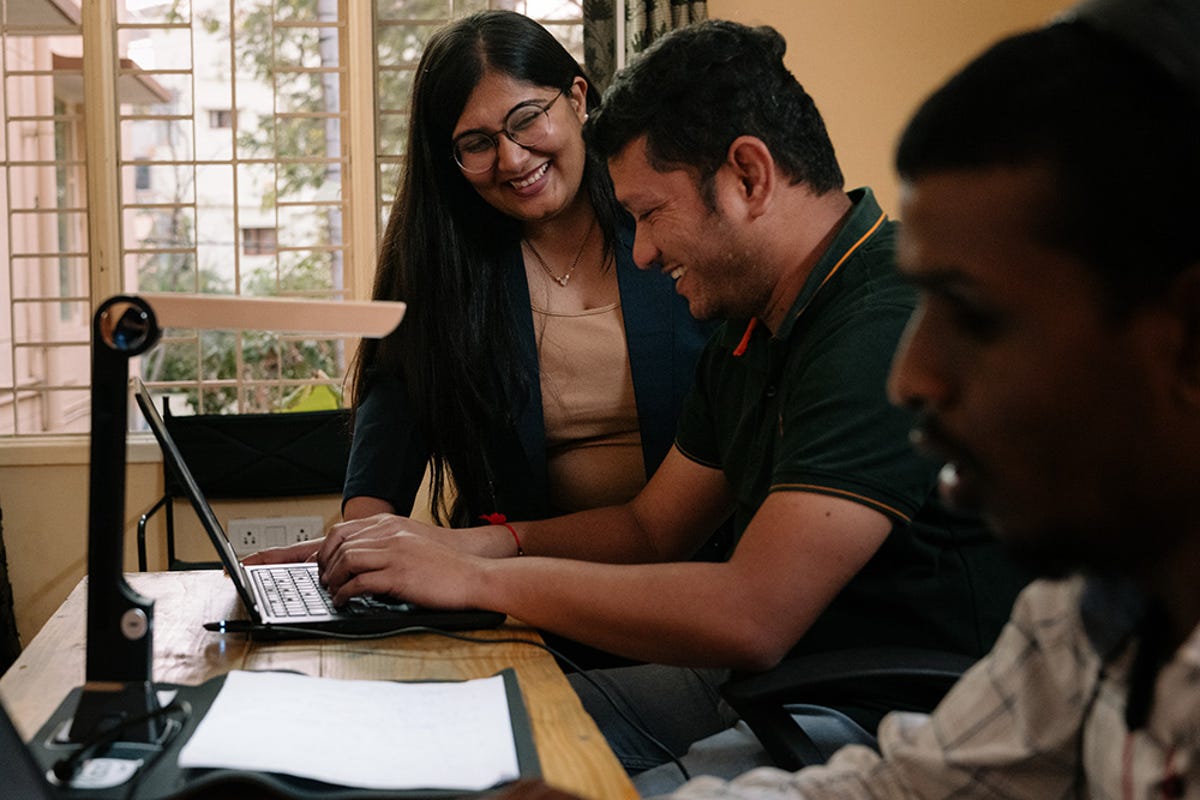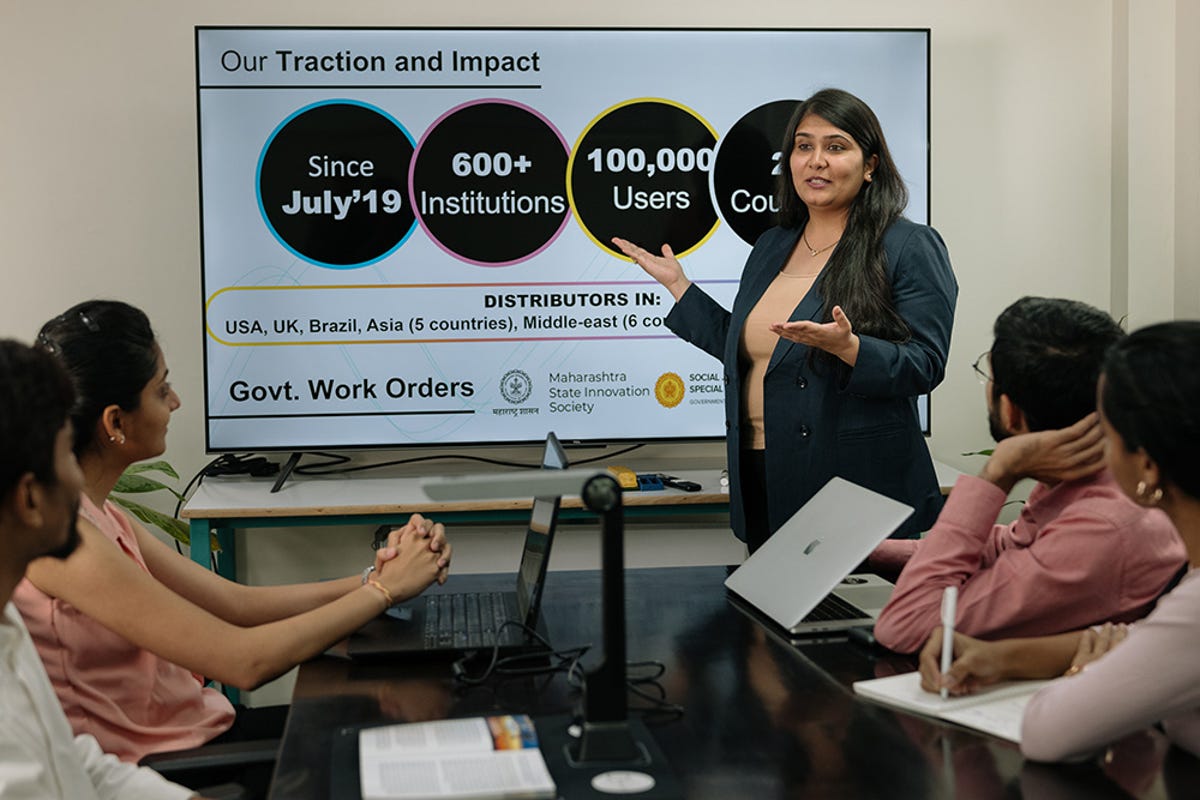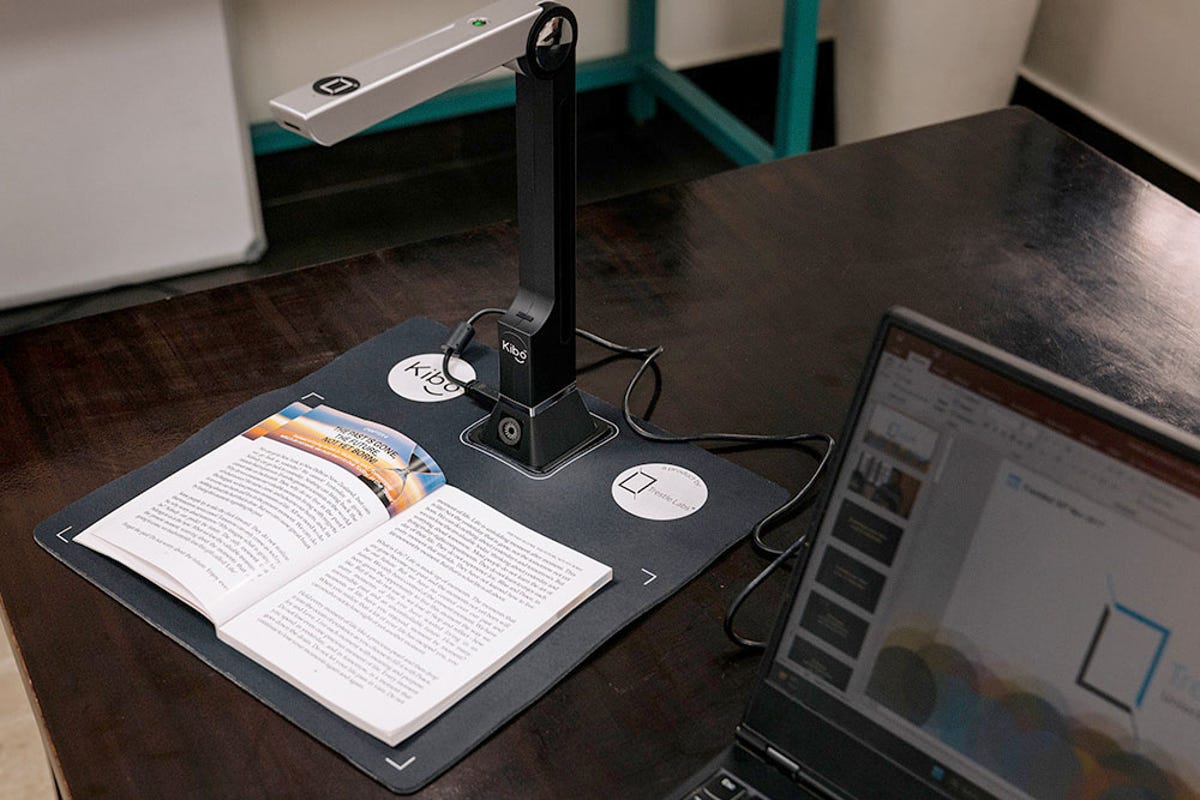Fellow Portrait
Akshita Sachdeva
Trestle Labs

Trestle Labs’ Kibo device gives blind people audio access to any printed, handwritten, and digital content through an audio-based app.
Diversity, Equity & Inclusion Award
India
Fellow
2024
Updated March 2024
Essential information about the world often is inaccessible to visually impaired people
In India, twenty million blind and low-vision people under 50 years old lack access to content the rest of the world takes for granted, from books and websites to restaurant menus and concert programs. Current solutions like Braille books and audiobooks don’t offer real-time content access and may not be available in regional languages.
Trestle Labs co-founder Akshita Sachdeva was working on a multi-utility reading and utility glove for the visually impaired during her computer science engineering program. The glove’s obstacle detection sensors and a camera on the index finger enabled a visually impaired person to point and have the glove read and describe the scene.
One boy’s life-changing experience led Akshita to start working in the direction of making education and employment inclusive for him and millions like him. “He told me, ‘Now I can read and travel on my own,’” she says. “Listening to him talk that way motivated me.”
What keeps us going are the impact stories. We never know who's going to call us and share their story of how our work is empowering their productivity, their academic performance, their lives.

Trestle Lab’s Kibo interprets and translates the visual world
Akshita embarked on her mission of making education and employment inclusive through Trestle Lab’s Kibo, which she describes as “an AI-powered patented technology in the form of a magical talking table lamp. You place a book under the lamp and it’s almost like the table lamp is reading the book for you. The best part is that it reads in the language that you want. You can hear an English book in French or Spanish.”
Kibo currently supports 60 languages, covering 80 percent of the world's spoken languages. It has a handwriting recognition feature, which visually impaired professors use to assess student answer sheets, with support for translation across 100-plus languages. The product also reduces the typical print-to-audio production time from 30 days to less than 30 minutes.
“We not only help the visually impaired, but also help bridge language, literacy and disability barriers. We position Kibo as an inclusive reading and learning product,” Akshita says.
Our Kibo makes PDFs accessible and searchable. And, while they’re accessible for persons with vision impairment, they’re inclusive for all of us. Who would not want a searchable, accessible PDF?

Kibo furthers the cause of disability inclusion with millions of digitized books
Trestle Labs has made more than one million books available to the visually impaired, and Kibo has reached more than 600 institutions and 100,000 users in 25 countries since its launch in 2019. Through partnerships formed during 2023, the company has brought on-board ten distributors across 30 countries as part of its vision to address the global challenge of disability inclusion.
In the next year, Kibo aims to more than double its current reach by empowering another 100,000 visually impaired individuals and making 2000-plus institutions inclusive.
Akshita describes the experience of a 17-year-old who lost her sight suddenly after her first semester in college and struggled to learn Braille so she could continue her education. “We digitized her book. Later, she called saying she cleared her second-year exam. That made us believe we are going in the right direction and should continue doing this for millions like her who struggle with education and employment.”
We have empowered 100,000-plus visually impaired individuals in their education and employment journeys, including students aspiring to competitive exam preparation, professors, lawyers, bank employees, and government officers.





